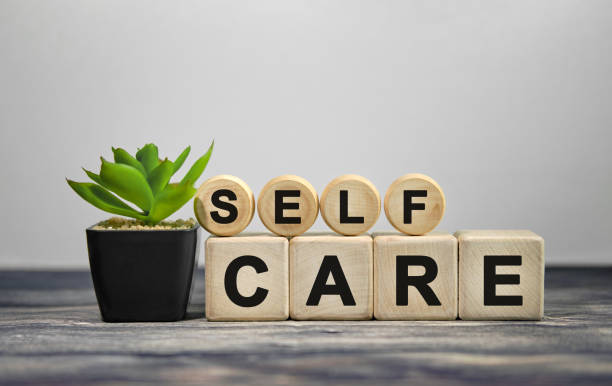Why is Self-Care Important?
Self-care is an important component of overall wellness. It not only improves our physical health, but also helps us to manage stress. It also strengthens our relationships with others. In addition to reducing stress, it helps us to maintain homeostasis. Self-care techniques can be effective in many different settings, from the home to the office.
Self-care eases the mind and body
Self-care is a practice that can be very beneficial for your mind and body. Stress and other factors can make life difficult, but practicing self-care will allow you to relax and reduce your stress level. In fact, there are many different types of self-care, and they each have their own benefits.
Many forms of self-care are beneficial for your physical health, including stretching during physical therapy and cleaning your house. It can also be as simple as putting on a face mask to help you feel good about yourself. Self-care activities can be as simple or as complex as you wish. Whatever you choose, remember to include a few simple activities that will make you feel better and more energetic.
Whether you are struggling with depression, anxiety, or other issues, self-care can help you overcome the challenges and remain happy. The key to practicing self-care is to check-in with your body and ask it what it needs. You can even use self-care to cope with hard news stories and maintain your happiness. However, remember that no two people have the same definition of self-care, so make sure to find out what works for you personally. You might be surprised at how much a little self-care can do for you.
It improves physical and mental health
Practicing self-care is a powerful way to improve your health and happiness. By fueling your body with healthy foods and plenty of sleep, you can make a significant difference to your overall well-being. This also includes being mindful of alcohol, sugar, and medication intake. In addition, spending time in nature can help lower stress and improve sleep. Exercising and taking care of your physical needs are also crucial aspects of self-care.
While self-care is an important aspect of maintaining physical and mental health, it is also important for social interactions. While it may seem counterproductive, taking care of yourself can actually help you build a stronger social network. It can also help you cope with loneliness and isolation. You can take advantage of the many benefits of self-care by making time for a hobby you enjoy, or by going to a spa or movie.
Exercise, meditation, and taking a walk in nature are all beneficial for the mind. If you’re a busy person, you can try a fitness app like Future that connects you with a personal trainer. They’ll program workouts for you and motivate you to complete them. This app also offers 50% off the first three months! Self-care is a crucial part of overall health and can lower the risk of illness and death. It’s also a good way to save money on health care costs.
Self-care is more than just a relaxing hobby. It includes taking care of your emotional, physical, and social well-being. Taking care of yourself will make it easier for you to take care of other people. Self-care will also help you to recognize and appreciate the positives in life. It’s a positive mindset that will help you to build a strong foundation for healthy relationships.
It helps maintain homeostasis
Homeostasis is a condition in which an organism’s internal environment is in a constant state of balance. This is achieved through the complex interaction of multiple feedback systems. The result is increased flexibility and a finer level of control. This is a healthy state of well-being.
Homeostasis is important for ensuring that our bodies are functioning at a healthy level. The body is constantly striving to maintain this balance. For instance, when we are hungry, our brain signals to our bodies that we need more nutrients. The hypothalamus then responds by releasing hormones that help keep our bodies at the appropriate temperature.
The concept of homeostasis has evolved from the Greek concept of body humors. Scientists such as Claude Bernard and Walter Cannon have applied the concept of a constant internal environment to explain how homeostasis occurs in the body. As a result, homeostasis is the key unifying concept of physiology. The idea of homeostasis is the ability of an organism to regulate its environment to cope with environmental challenges.
It reduces stress
Self-care is a very effective way to reduce stress. It has numerous benefits, and it’s easy to incorporate into your life. It also helps you to feel better and be more productive. Taking a break from work can help you to refocus on important tasks. However, you must be careful not to confuse self-care with procrastination. It’s important to take the time to practice deliberate self-care so that you can reap the rewards.
Taking care of your physical and emotional health is essential to managing stress. Eating a healthy diet will help your body function properly and boost your mood. It will also strengthen your immune system and improve your digestion. Finally, getting out in nature can reduce stress. It is a relaxing environment that will give you a sense of peace.
A study by the University of Westminster concluded that taking care of one’s physical health helps one’s mental health. It helped study participants report feeling happier, less anxious, and more optimistic about the future. Other research by the University of Miami suggests that self-care may boost the immune system, and that people who practice it feel more resistant to illness.
Practicing Self-care is an essential part of life, no matter what your age. Regular exercise improves the level of serotonin, a hormone that boosts your mood. It also increases your energy levels. For best results, choose an activity that you enjoy. This way, you’ll get extra fulfillment out of doing it.
It builds resilience
Practicing self-care is essential during stressful times and is an important component of building resilience. It helps you to cope with difficult emotions and develop new thinking strategies. It also helps you to tap into your own resources and the support of others. A few examples of these are close relationships with family members and social support networks. These relationships can help you cope with tough times and also provide you with enjoyment and satisfaction during everyday life.
Resilience is the ability to cope well with adversity and bounce back from difficult experiences. Taking care of yourself helps you build resilience because it helps you prepare your mind and body for adversity. It helps you see past your problems and move on with your life. If you don’t feel resilient, you may continue to dwell on difficult circumstances and may turn to unhealthy coping mechanisms to get through adversity.
Building resilience isn’t something you can do overnight. It takes patience and practice. You must find a strategy that suits your lifestyle and helps you cope with the challenges you face. It’s also advisable to seek professional help if you’re experiencing severe stress. In such cases, your doctor can recommend mental health professionals or connect you with support groups. These professionals can help you deal with stressful situations and help you become more resilient.
Self-care can also improve your self-esteem and self-worth. The act of giving yourself attention and loving attention every day can help you feel balanced and in-balance. Practicing self-love is essential to building resilience.













